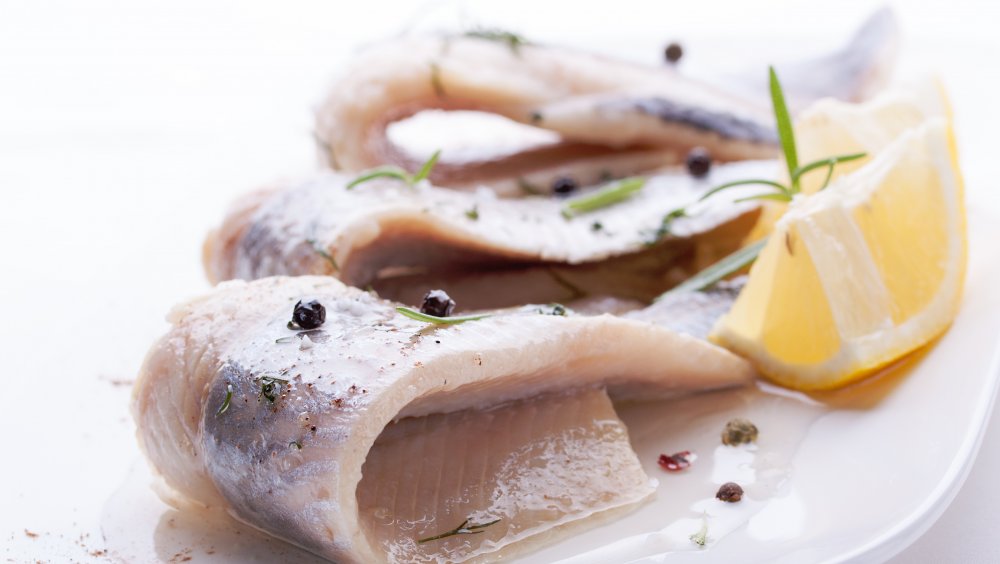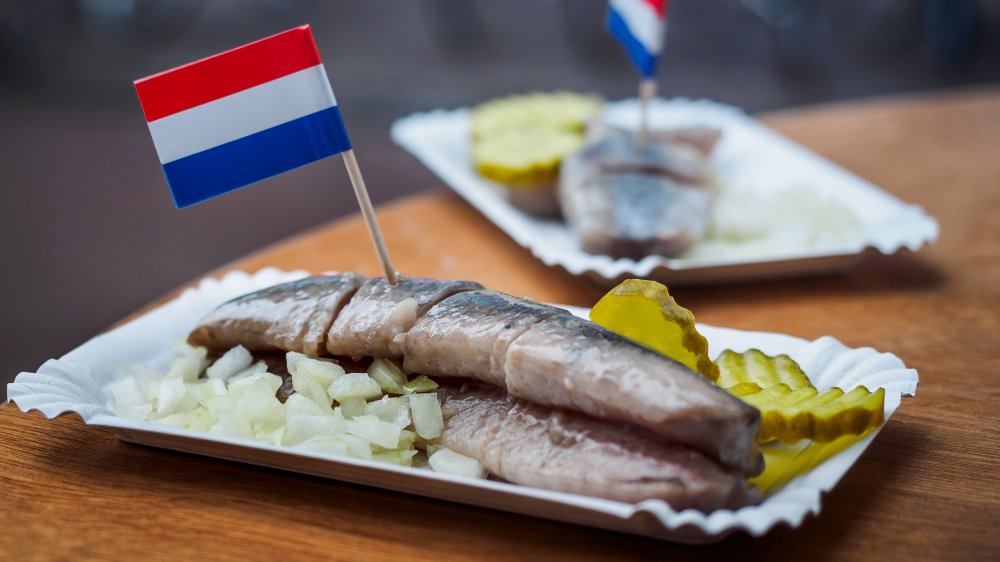Why You Should Start Eating More Pickled Herring
Truth be told if you're not exactly a fan of fish, you'll probably be less thrilled by the idea of eating it after it's been sitting around – either whole or in fillets – in vinegar or brine. But pickled herring is a thing in many parts of the world; and depending on where you are in the world and how the fish are prepared, they can be called Rollmops, Hollandse Nieuwe (via Holland.com), Matjes, or Bismark Herring (via The Spruce Eats). Pickled herring is so popular that it is a culinary staple in the regions where it is widely enjoyed.
Herring commonly inhabit the North Atlantic, Baltic, and the North Sea, and this fatty fish has been enjoyed for hundreds of years. In addition to being pickled, they can be prepared and consumed raw or smoked (via Grapes and Grains). Pickled herring is eaten as a snack or meal with rye bread, crispbread, potatoes, and sour cream (via Fit Day), while in Sweden herring is even fermented. The resulting product, also known as "surströmming" (or rotting fish), is in the running for the smelliest dish in the world (via Visit Sweden).
While we'd understand if you opted to give surströmming a hard pass, there are many reasons why you might want to consider a bite of pickled herring. And we think that if and when you get hooked, you'll want to make it a regular part of your diet.
Pickled herring is packed with healthy fats and vitamin D
A 3.5-ounce serving of pickled herring clocks in at 262 calories with 18 grams of fat (via Livestrong). Of this, only 2 grams are made up of unhealthy saturated fat, which means pickled herring has got qualities going for it in the healthy eats department. If its high healthy fat count isn't enough to convince you to give pickled herrings a go, you might consider that a serving also packs as much as 14.1 grams of protein – or roughly 25 to 30 percent of what your body ought to take in on a daily basis. Pickled herring is also a bargain source of Vitamin D since it provides roughly double the daily amount your body needs. And since vitamin D helps protect you from diseases like cancer and heart disease, we can't see how a serving of pickled herring can do you wrong.
As with all foods, consuming copious amounts of pickled herring for its Omega-3 fatty acid content may not be such a great idea, since eating too much protein-rich food may trigger headaches and high blood pressure (via Fit Day). So even if you've picked up a taste for pickled herring – or enjoy it as much as the Dutch, Swedes, or Germans do – you may want to enjoy it in moderation.

